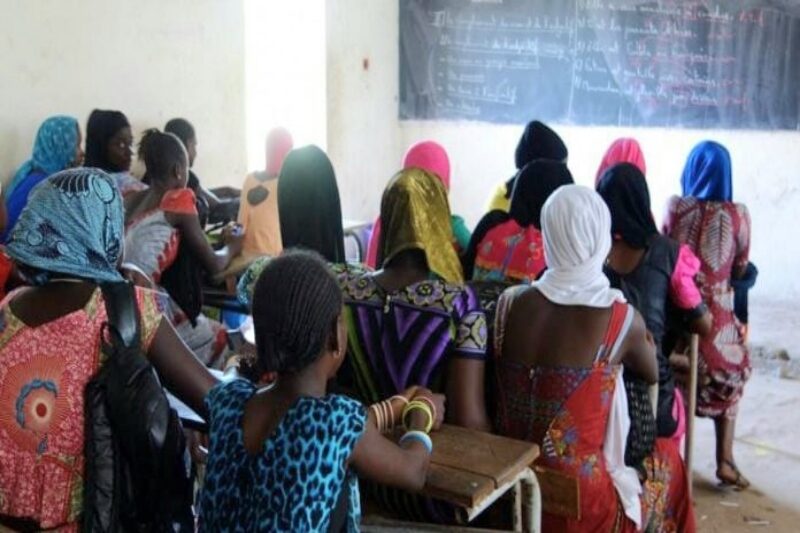Millions of girls across the globe miss school for a week every month because of menstruation.
This can have a devasting effect on their education because they start falling behind on their studies and many eventually drop out of school altogether.
The onset of menstruation means a new phase – and new vulnerabilities – in the lives of adolescents. Yet, many adolescent girls face stigma, harassment and social exclusion during menstruation – and are often regarded as being “unclean”.
Gender inequality, discriminatory social norms, cultural taboos, poverty and the lack of basic services – such as toilets and sanitary products – can result in menstrual health and hygiene needs going unmet.
According to the World Health Organisation (WHO), this has far-reaching consequences for millions of people. It restricts their mobility and personal choices. It affects attendance in school and participation in community life. And it compromises their safety, causing additional stress and anxiety.
Lack of access to functional and segregated toilets, limited information on menstrual hygiene management and the short supply of sanitary materials make it even more difficult for girls.
Menarche, the first menstrual period, is one of the most important physiological changes in girls and marks the beginning of their reproductive lives. It usually occurs between the ages of 11 and 14 years.
Menstruation in some cultures is shrouded in taboos, myths, misconceptions and prohibitions based on the notion that the menstrual discharge is “unclean” or “dirty”, all of which put undue psychological stress on girls.
Adolescent schoolgirls are confronted by the same negative societal gender stereotypes and wrong perceptions about menstruation including physical, environmental and economic barriers to decent menstrual hygiene management.
Poor menstrual hygiene can pose physical health risks and has been linked to reproductive and urinary tract infections, as well as to poor educational outcomes.
In Borno State in the northeast of Nigeria it is usually the girls and women living in internally displaced persons’ camps who suffer most because of the lack adequate clean water and sanitation facilities.
Most of the inhabitants live in poverty and their lack of money makes them victims of what has been described as “poverty periods” because they often cannot afford to buy sanitary products.
The result is that menstrual hygiene in these camps is one of the most neglected health issues.
RNI spoke to girls at Kawar Maila, an informal camp in Maiduguri, all of whom are pupils at the Abbagaram Primary School.
The girls said that during their menstrual cycles they often had to deal with discomfort. It was not uncommon for them to stay away from school and it put unnecessary restrictions on their daily routines.
Zara Maina, who is 15, said she always felt uncomfortable when her period started. She stopped attending gatherings because she was afraid people would notice. She often did not go to school, especially during the first to third days of her period.
Kaltum Umar, a 13-year-old, said she started menstruating two months ago.
“I am afraid of mingling with people. I constantly look to see if there is any blood showing. I don’t even want to go to school. I do my best to keep clean, even though it is difficult in the camp.”
Falmata Mohammed, who is 12, also recently began menstruating.
“I always feel ashamed and I don’t want to be among others.”
RNI spoke to teachers at Abbagaram Primary School to find out what they were doing to ensure there was adequate hygiene for their pupils, especially during menstruation.
A teacher, who identified herself only as Yagana, said: “We keep sanitary pads and pain relief drugs at the school for the girls. We try to be empathetic and encourage the girls to talk freely about menstruation. We also have two cleaners in the toilet area who help to keep everything hygienic.”
A nurse at the school highlighted the importance of menstrual hygiene, saying the girls were given information so that they could ensure personal hygiene.
“In our everyday lives we bath and wear clean clothes but sometimes we forget that intimate hygiene is important. Taking care of our menstrual hygiene helps to reduce the risk of infections – and it also encourages girls to continue to attend school when they are menstruating.”
FALMATA MOHAMMED ALI








